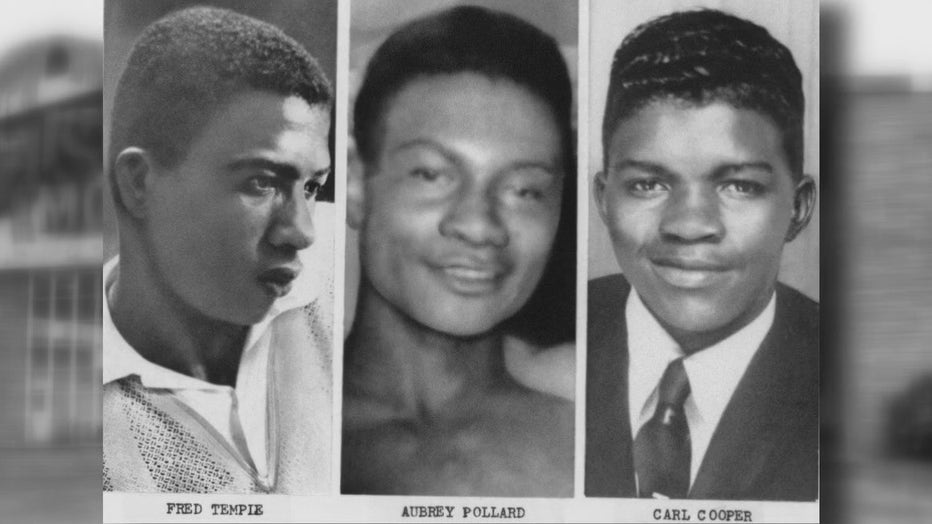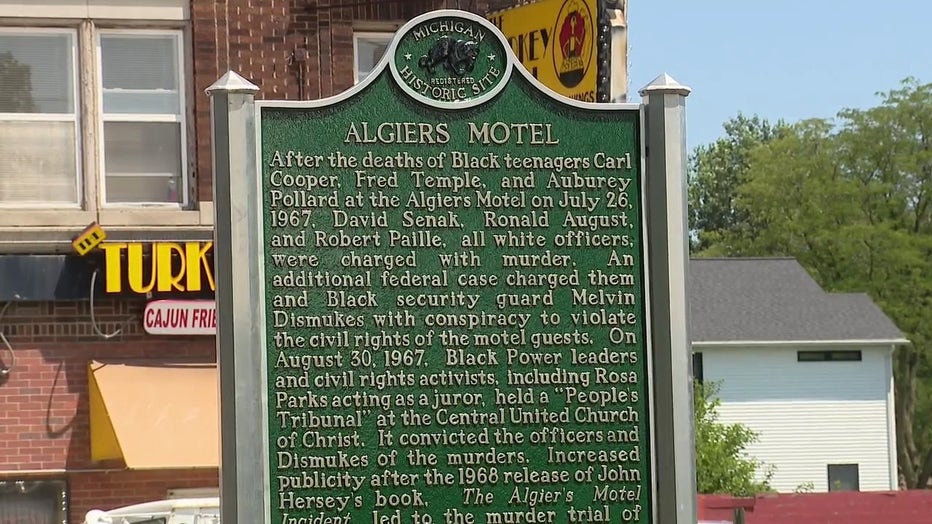Historical marker unveiled at site of Algiers Motel, where police killed 3 black teens in 1967
Historical marker placed on site of Algiers Motel incident in Detroit
57 years later, a historical marker was placed at the site of a tragedy -- where police killed three black teens and beat up six others during the 1967 Detroit uprising.
DETROIT (FOX 2) - On July 26, 1967, three Black teens were fatally shot by police while six others were brutally beaten. Now, 57 years later, a historical marker is at the site to acknowledge a tragic piece of history and honor the victims.
Lee Forsythe, Rodney Davis, Larry Reed, Michael Clark, Juli Hysell and Karen Malloy survived the attack but were severely injured.
"Twenty stitches in my ear," Forsythe said, recalling the attack. "I began to learn what hate was, not just racism, but hate."
The incident took place during the Detroit uprising of 1967, at the now torn-down Algiers Motel and annex.
"I saw my best friend die. I heard him take his last breath," Forsythe said.

(University of Michigan History Labs)
Fred Temple, Auburey Pollard, and Forsythe's best friend, Carl Cooper –all between the ages of 17 and 19– were shot and killed by white police officers who covered up evidence, then confessed, but were never convicted. A Black security guard was also accused of violating the victims' civil rights.
"There were at least three different trials, but local, state, and federal judges and juries failed to hold anyone accountable," according to a city news release.
The motel, which was located on Woodward Ave, was demolished in 1979. A new historical marker stands at the site, with a description of the brutal attack and murder.

"An all-white jury acquitted on the federal side, there were two standards of justice and what happened in the Algiers Motel case was the reason people were so angry and the violence started in the first place," said Detroit Mayor Mike Duggan at the unveiling of the marker.
Danielle McGuire, a historian of the Civil Rights Movement, and the community worked for years to make sure the marker was installed.
"This marker, this memorial, is a bond between the living and the dead — between those of us that can tell the truth about the past, and those who can't," McGuire said.
Relatives of the victims gathered along Woodward Avenue in Virginia Park on Friday to remember their loved ones during the unveiling.
"Freddy always had a beautiful smile that would knock you out when you walked in the room," Sherry Temple Johnson, Fred Temple's sister, said. "He was more happy and showed more love than anyone I knew. He cared about people."

(Wayne State University Reuther Library)
"You can be in the wrong place at the wrong time and your whole life will change," said Carl Cooper's nephew, Kevin Kincannon. "I think these guys (were) in the wrong place at the wrong time."
Thelma Pollard-Gardner is Auburey Pollard's sister. She remembers the phone call from his friend, the horrible news, how they couldn't get any information from police for days, and how the murder tore her family apart.
"My mom started screaming ‘no, no, not my son,’" Pollard-Gardner said.
And while the historical marker can't fully tell the families' struggle, it tells this one:
"Never forget what happened July 26th, 1967," Pollard-Gardner added.

